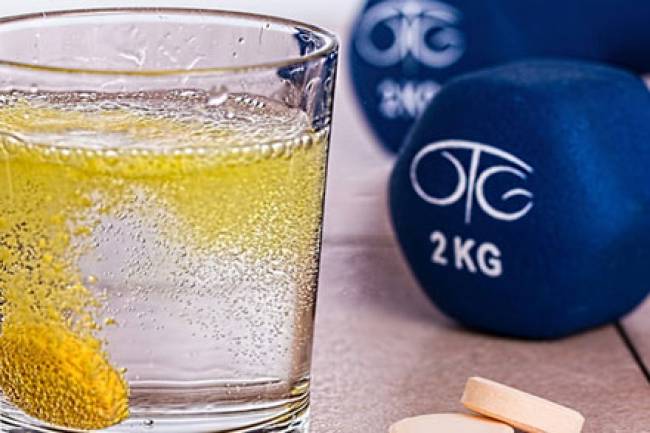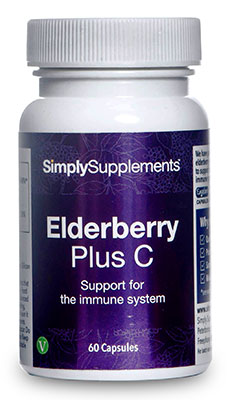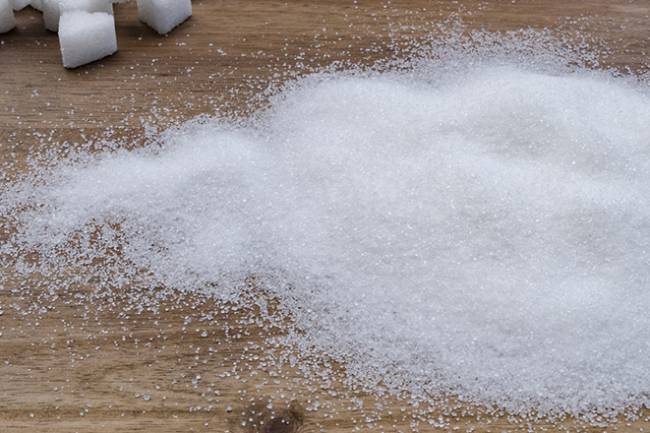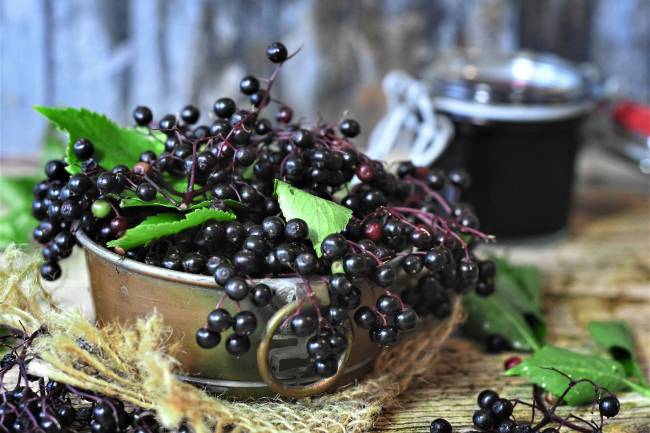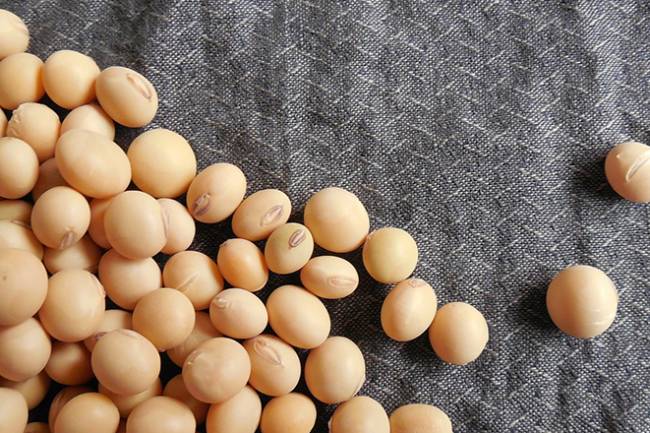The Immune-Boosting Properties of Elderberry
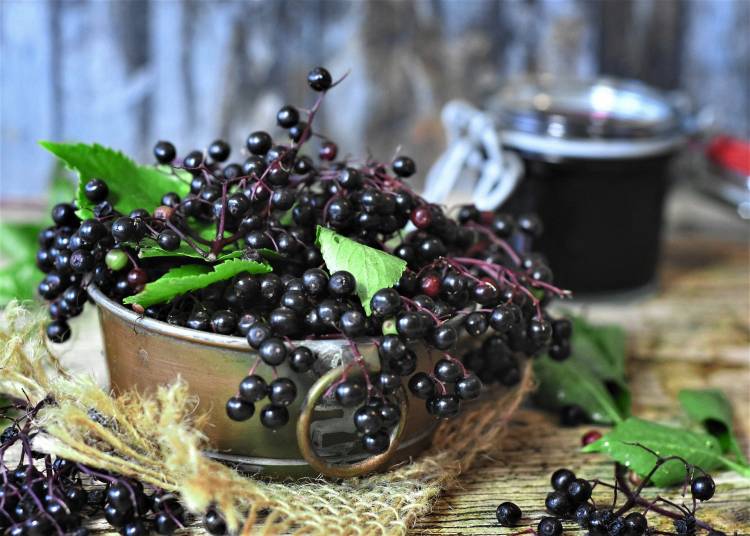
When we think of foods to support the immune system, citrus fruits, leafy greens, garlic and ginger are some of the ones that often come to mind. However one ingredient that is just starting to be recognised for its ability to assist with our natural defences is elderberry.
Elderberries, known scientifically by the name Sambucus nigra, have long been appreciated for their powerful nutrient profile. It’s only fairly recently though, that we have learned what specific health benefits elderberries can provide to us when consumed. In this latest HealthyLife article, we are going explore all things elderberry so you can see whether you could benefit from adding it to your diet.
Elderberry for Fighting Colds and Flu
The area of greatest interest with regards to elderberry has been with the immune system. We all know the feeling of being under the weather, struggling to shift the illness and we all appreciate the toll it can take. Looking at it from a different perspective, The Office of National Statistics states that we lost 34 million working days in the UK during 2016 due to illnesses like cold and flu. Clearly, there is a great societal interest in finding ways to quickly and safely overcome such infections.
There is now a small collection of studies that are in agreement that elderberries can have a significant positive impact on our immune system. One study of note recruited 312 participants to see if an elderberry extract could help to prevent cold and flu symptoms after travelling on an aeroplane, a notorious setting for developing illnesses. The participants were randomly split into 2 groups, with one group receiving a 300mg elderberry extract supplement twice daily while the other group received a placebo.
In the days following the flight, it was reported that 17 people taking the placebo developed a respiratory illness compared to just 12 in the elderberry group. Not only did the elderberry supplement lead to fewer illnesses, it reduced the length and severity of symptoms in the 12 who did become infected.
Looking at Influenza A & B specifically, a study published back in 2004 recruited 54 adults suffering from these 2 strains of flu. Again, this study was the gold standard randomised, double-blind placebo controlled trial, meaning that the participants were randomly assigned to receive either the supplement or a placebo, and neither the participants nor the core research team knew who took what.
It was discovered that those taking the elderberry syrup supplement recovered on average 4 days quicker than those taking the placebo. These are significant findings and ones which led the research team to conclude that “Elderberry extract seems to offer an efficient, safe and cost-effective treatment for influenza”.
Interestingly, elderberry has shown to work particularly well with echinacea, a traditional herbal remedy which also has scientific support for its ability to combat cold and flu symptoms. A study conducted in the Czech Republic recruited 473 participants who had recently developed influenza symptoms (less than 48 hours). The volunteers were provided with 10 days worth of treatment and were randomly assigned to have either 5 days of an antiviral medication then 5 days of a placebo or 10 days of an elderberry and echinacea drink.
The researchers found that both types of treatment led to markedly similar recovery rates but interestingly, the elderberry and echinacea drink led to far fewer side effects such as nausea and vomiting when compared to the medication.
How Does Elderberry Improve Immune Function?
Now we have looked at studies that have shown what elderberry can do when the dreaded cold or flu gets a hold of us, you may be wondering how it actually works. Fortunately, this is an area which has been recently investigated too.
As mentioned earlier, elderberry is appreciated for its nutrient density. It contains a wide range of antioxidant compounds known as anthocyanins as well as vitamins A, C and folate which help to protect cells from oxidative stress. These essential vitamins are also proven to support the normal function of the immune system.
The primary anthocyanin in elderberry known as cyanidin 3-glucoside has been shown to have a number of key mechanisms. A study published in the Journal of Functional Foods found that not only does elderberry partially inhibit the virus getting into cells, it makes the virus less effective at replicating. That’s not all though, as the special compounds within the elderberries also stimulated the immune system to co-ordinate its defences much more effectively. Specifically, antibodies and a wide range of cells known as cytokines were shown to increase markedly.
How Much Elderberry Should I Take?
As always, it is important to ensure the dosage you take is one that is both safe and effective. Generally speaking if you buy supplements from reputable suppliers, they will recommend a daily dose that is most suitable. However, it is always a good idea to research this yourself just to make sure that you are taking an amount that is tailored to your requirements.
With elderberry, it all depends on the type of supplement you take. Elderberry juices, syrups, tablets and capsules have all shown to be effective. If you are taking an elderberry syrup, the evidence shows that 15ml per day is an effective amount. This equates to one tablespoon. In one of the research studies using a concentrated elderberry juice, 27ml was used and diluted with water to great effect. Finally with regards to tablets and capsules, it seems that 150-600mg of elderberry extract is a good range to aim for. The key point with all elderberry supplements is making sure you choose one that is standardised to contain a high amount of anthocyanins because as we know, these are what provide the benefits.
Summary
In summary, we hope this article has helped you learn something about these powerful little berries and has shown that it may be a good idea to keep a high quality supplement in the cupboard, especially during the cold and flu season. It seems clear that the biggest benefit is experienced when taken as soon as you start to experience symptoms, but certainly within 48 hours. When this is the case, you can expect to have milder symptoms and get over your illness much quicker than usual. Just make sure you purchase a supplement that provides information about the level of anthocyanins on the label.
Although elderberry extracts have been shown to be effective against 10 different strands of flu, it must be said that there is currently no evidence that elderberry can have an impact on COVID-19. However it’s certainly an area of interest for future research studies.
References:
https://pubmed.ncbi.nlm.nih.gov/27023596/
https://pubmed.ncbi.nlm.nih.gov/11399518/
https://www.sciencedirect.com/science/article/abs/pii/S1756464619300313?via%3Dihub
https://www.ncbi.nlm.nih.gov/pmc/articles/PMC4528044/

 Richard
Richard 